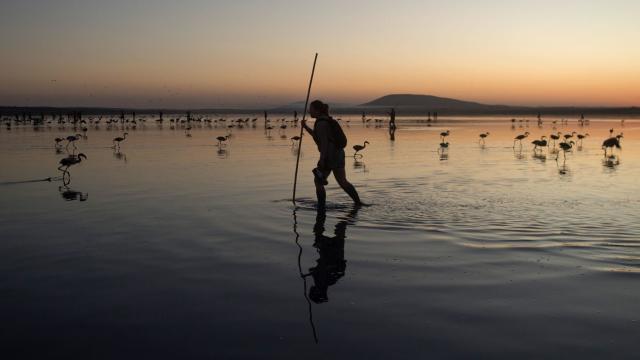There’s been a line of thinking burbling around certain corners of the internet that the coronavirus is good, actually. That it’s nature’s way of healing itself or alternately punishing us, Old Testament-style.
Proponents of these ideas will point to wildlife returning to cities or drops in air pollution as proof that this tragedy is the course correction we deserved for our sins against the environment. Hell, even CNN used the good-for-the-planet trope to tee up a story.
The fact is, nothing could be further from the truth. We’re as much a part of nature as the cougars roaming Boulder, Colorado, apartment complexes. The real issue is that corporations and complicit governments have done everything in their power to break that bond with nature. The coronavirus shows that connection is still there. And more importantly, it shows we have a lot of work to do to nurture it back to good health or we really do risk losing everything.
[referenced url=” thumb=” title=” excerpt=”]
Those cheering the coronavirus dabble in a handful of ideologies. There’s the ecofascist idea of seeing humans as a disease that needs to be cleansed. There’s classic racism and classism since the “we” the virus has taken a toll on is not evenly distributed, with black and brown communities seeing an outsize number of deaths. There are even shades of dyed-in-the-wool liberal ideas that nature somehow exists over there in a national park or something, walled off from noxious smog-choked cities.
Believing the myth that we are separate from nature, though, means buying into the lie fossil fuel corporations have told for decades. The entire business model of the industry is perpetuated on convincing everyone to ignore the impact mainlining carbon pollution into the atmosphere has on the biosphere, all to enrich a few already wealthy individuals.
Climate denial is the most blunt tool to make the bogus case that nothing we do has any impact on the natural world. As flat-out denial of climate change has become more gauche, industry and its proponents have turned to delay, false promises, asking how we’ll pay for emissions reductions, and pointing to the inevitability of the status quo. All of them are gentler tools, but the desired end result is the same: keeping us from tending to our relationship with the rest of nature.
Companies producing single-use plastics—often linked to the same companies digging up oil—new smartphones, fast fashion, palm oil, and just about everything else rely on using the same myth to sell their wares. All the trappings of modernity and advertising around it are meant to separate us from the natural world and continue a cycle of rising corporate profits and endless economic growth.
But the reality is that we aren’t separate from nature. Far from it. Digging up oil, turning land over to monocrops, overfishing, and rampant pollution all threaten to upend our world and everything in it. In fact, each extra puff of carbon pollution and piece of single-use plastic that ends up in the ocean ties our fate ever tighter to that of the planet. Eventually, all that carbon dioxide will push seas higher and inundate our homes. And the plastic will choke out the natural world, leading to deserted oceans and dried up livelihoods.
Saying that the coronavirus is a “we’re the virus” moment kicks all of that to the curb. It erases our agency and the fact that this is a moment when, more than ever, we need to acknowledge our partnership with the planet. Just as flowers need rain to sprout and whales need plankton to thrive, we need the whole biosphere to exist. And we need to fix our relationship with it fast if we’re still going to have a future together.
Look, I get it. It’s nice to see the animals back and the air pollution clear up. But we don’t need a pandemic to show us that a better world is possible. We first need to acknowledge we’re as much a part of nature as the crocuses rising in the park. And then we need to rise up and hold the people and the polluting industries who have lied for profit to account. Only then can we start to repair the damage done. If the virus shows us anything, it’s that rebuilding our relationship is essential and the rest of nature is ready to reconcile. Imagine what would happen if we actually put in the work.
